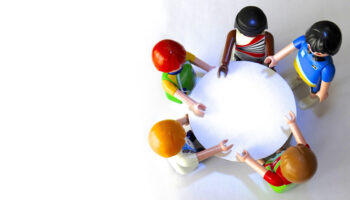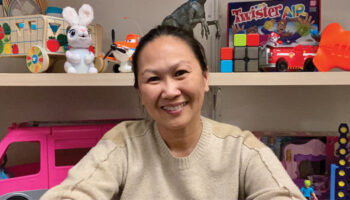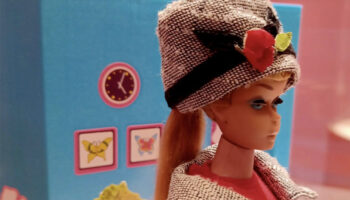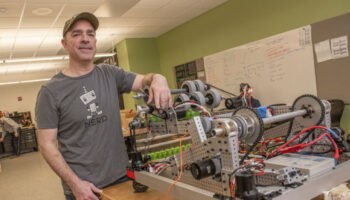What has lockdown done to play?
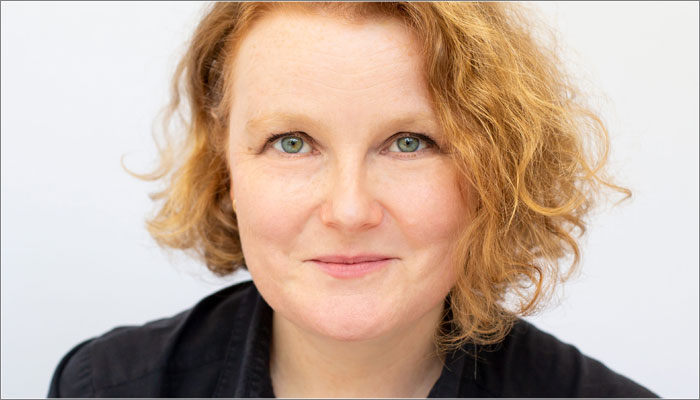
It’s been twelve weeks since schools closed, and kids and their grown-ups have now settled into their various forms of quiet desperation – or the loud version.
School has been so unquestioned for most of us for so long, that this is a unique opportunity to look at play when the school schedule isn’t in charge of when play happens, where it happens, who it happens with and how much time there is for it.
Is the same, but more – or something different? How are kids and their grown-ups playing during lockdown, what are they playing with – and are there toy learnings to be taken from the answers to these questions?
I asked friends and contacts across a variety of ages from 1 to 13, if you could have anything, what would you have?
“A teleporter.” (G, aged 9)
“A time machine.” (F, aged 7)
“Invisibility power.” (J, aged 8)
“Superpowers to cure coronavirus.” (L, aged 10)
“A pause button. So I can sleep.” (L, aged 36)
“A screen that R could use without me feeling guilty or him going hyper.” (A, aged 32)
“Something that tells stories to my child without more screen time.” (L, aged 35)
That’s just a selection of replies, but what I was hearing overall is that children want freedom, and access to space; adults want more time, or at least control over it.
Connection across age boundaries: This was a theme that kept coming up, for better or for worse – school year groups usually corral children into groups of peers of very similar age and development stage. Families spending nearly all of their time together, and deprived of their usual peer playmates, are finding ways of bridging developmental gaps in play.
Classic board games came up in many responses – often pulled out of cupboards, but also bought. Also existing favourite (or slightly forgotten) online games like Fortnite and Roblox are being enjoyed in different ways, with siblings collaborating, and older kids tutoring younger ones. World building online acts as a proxy for access to real space that kids can annexe and control.
Imaginative play and storytelling: This is one way for kids of different ages to meet each other where they are. As the backdrop to their imaginative adventures, more than ever, kids are colonising and remodelling domestic spaces as dens, forts, HQs, and lairs of various kinds – and using the furniture and sofa cushions as props and sets.
Without outside interruption to the narrative, imaginary worlds that siblings create are more fully formed and complicated than before.
“Their imaginative games have become more complex and involve a whole world that I don’t really understand – I’ll hear them talking about something and it’s clear there’s a long, imaginary history behind it that I don’t understand.”
Role-play is taking slightly different emphases. For instance, the two year old who is “always taking the iPad into the bedroom for ‘a meeting’.” Another two year old is exploring what family is; imposing imagined family relationships upon all animals and even objects. When everything else is limited, imagination remains unlimited.
Screen time and online space: There is a tension between the brilliant capacity for electronics to deliver much-needed entertainment, and often really high quality content – and parents’ justified caution about too much screen time. It’s an exhausting push-pull between the benefits and disadvantages of tech, and the current conditions have made this tension more punishing for parents than ever. On the positive side, one parent of an eleven year old has seen him step up the coding:
“He got really into a project for the first time and worked on it over several days, which is new!”
I’ve seen my own children’s concentration spans extend and deepen as their usual rigorous, choppy schedule relaxes. It’s received wisdom that children have short attention spans – but how do we know? Is it we, who, always ultra-busy, always multi-tasking and using each piece of time for three different things, project this fragmented-ness onto our children?
Outdoor play and public space: “Are we going for ANOTHER WALK?” howl outraged children across the land. “But the playground is closed!” – what even is the point of a walk without a playground? Or football, or friends at the skatepark? There is no answer to this. We bow our heads and pass the taped-off climbing frames in solemn, respectful silence.
When I asked kids what they’re missing, it was interesting that some boys who didn’t immediately mention missing their friends at school did talk passionately about how much they are missing football, skating with friends at the skatepark, and other social sports.
A girl mentioned “soft play” wistfully, but her mother interjected: “You don’t even like soft play!” “Alright then, the cinema,” she amended.
Perhaps this is a yearning for public, commercial, semi-social space – the feeling of being part of a peopled town, instead of atomised family units.
The future: Parents are enjoying seeing their children form closer sibling bonds, and hope they’ll last. They’re impressed with their kids’ capacity for imagination, construction, and transformative creative play. They’re also feeling pretty tortured by the blessing and the curse that is the online electronic offer – will the pain ease as lockdown eases? Literal geographical space is even less available than ever to kids for exploring, claiming territory, and forming alliances – no wonder they are ravenous to consume online space.
So what next? Perhaps more sophisticated tech solutions to supporting parents in patrolling this thin, precious boundary between the benefits and the dangers of screen time – but it’s also interesting to consider the potential for radically child-centred tools which empower creative, imaginative play, without screens, that needn’t be patrolled.
Deirdre Heaney is a writer and editor, and has worked on product development for several licensors including HIT Entertainment, Classic Media, DreamWorks Animation and Acamar Films (Bing). Deirdre can be contacted directly at [email protected].
—-
To stay in the loop with the latest news, interviews and features from the world of toy and game design, sign up to our weekly newsletter here


